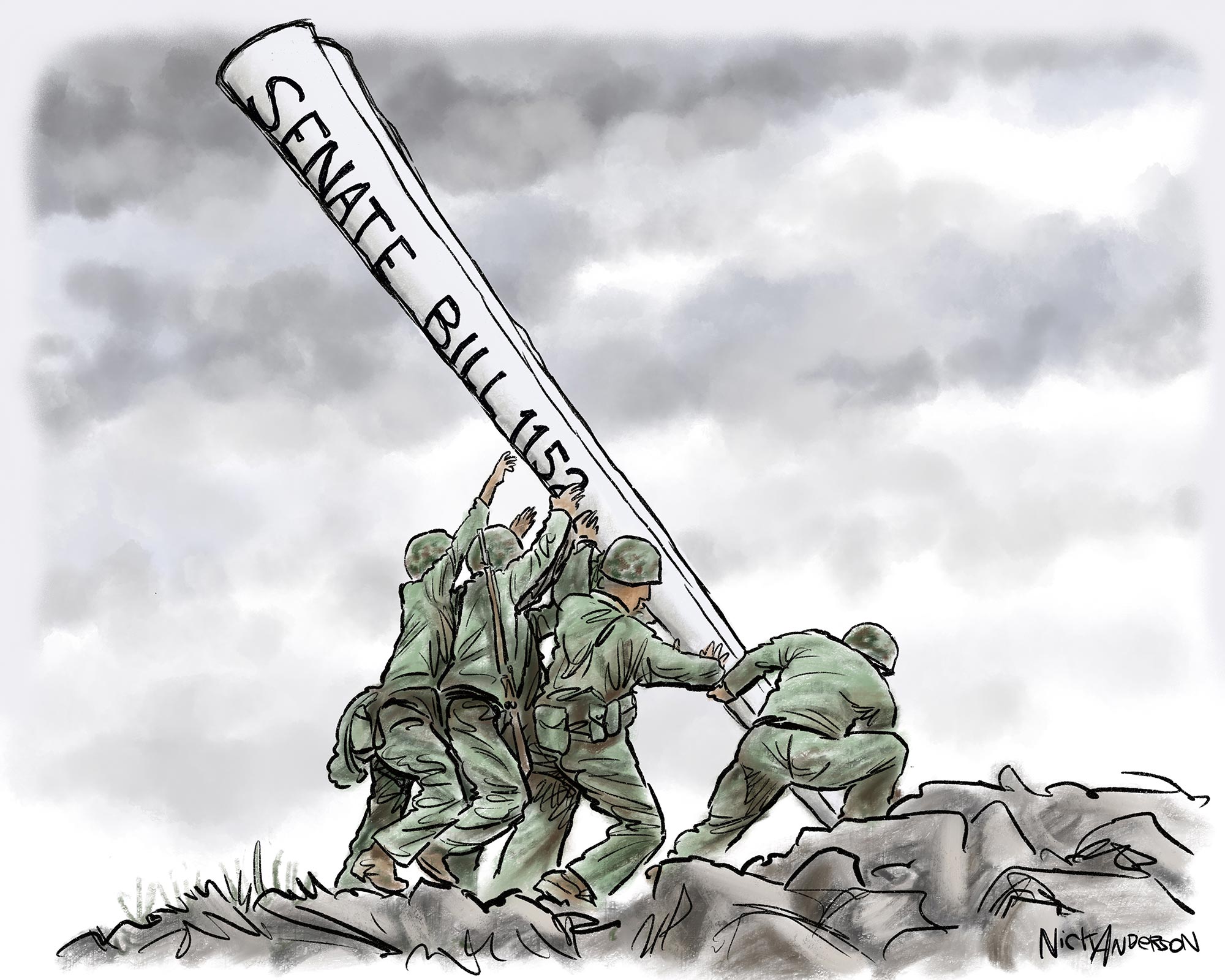
Super Preemption - House Bill 3899
Resources
Actions
House Bill 3899 by Rep. Drew Springer would have preempted any number of city regulations that have been enacted at the request of citizens. Local ordinances address needs at a local level that are not addressed sufficiently at the state level.
HB 3899 would have created a hardship on local municipalities in the recovery of cost for services. It would hinder local government from serving the immediate needs of the communities they were elected to serve, and among many other items, it would delay and stifle needed changes to rules and regulations.
Specifically:
- Provided that if state statute does not preempt city regulatory authority, it may not be construed to expressly authorize an ordinance, rule, or regulation.
- Prohibited a city from adopting or enforcing an ordinance, rule, or police regulation that imposes a restriction, condition, or regulation on the purchase or sale of goods or services of any kind or quantity, conducted by a person who engages in such activity in more than one city in this state;
- Prohibited a city from enforcing a regulation that includes any restriction, condition, or regulation of the goods, services, transactions, operations, purchaser-seller interactions, employment practices, finances, advertising, marketing, or any other conduct or practices by a person engaging in a commercial activity;
- Provided that a commercial activity that is subject to regulation by Texas or the United States cannot present any uniquely local concern; and
The bill would have applied to any business that does business in more than one city in the state, and it would appear to allow a city to use its zoning, subdivision, or other building regulations to adopt or enforce building construction standards and permitting, barring, or limiting the use of designated property for one or more designated types or categories of commercial activity.
For example, the following would have likely been wiped out by the bill:
- Payday lender regulations that prohibit predatory lending practices.
- Sexually oriented business regulations, such as "no touch" ordinances.
- Burglar alarm registration ordinances designed to properly allocate law enforcement resources.
- Pawnshop regulations designed to stop stolen property transactions.
- Eight liner and similar game room regulations designed to protect patrons of those establishments and properly allocate law enforcement resources.
- Short-term rental regulations designed to protect both patrons and neighbors.
- Noise ordinances designed to protect quality of life.
- Billboard and on-premise sign regulations designed to protect against visual blight.
- Peddler and door-to-door solicitor regulations designed to protect residents from unscrupulous salespersons.
- Oil and gas well drilling ordinances designed to protect residents from the deleterious effects of urban drilling.
- Ordinances regulating alcohol sales near churches and schools designed to protect youth.
- Health codes designed to protect restaurant patrons.
- Transportation network company rules at city airports designed to facilitate traveler access to those services.
The above are just a few examples of ordinances that are common in Texas cities. They may not be "essential to protect citizens' physical safety," but they are reasonable and certainly improve the quality of life of city residents and others.
The City of Houston testified against HB 3899 in House State Affairs. The bill passed committee 7-2 but failed to reach the House floor.
